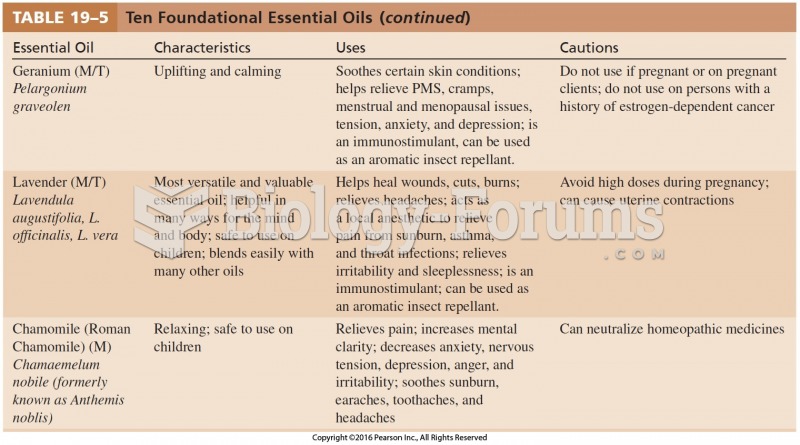|
|
|
Though Candida and Aspergillus species are the most common fungal pathogens causing invasive fungal disease in the immunocompromised, infections due to previously uncommon hyaline and dematiaceous filamentous fungi are occurring more often today. Rare fungal infections, once accurately diagnosed, may require surgical debridement, immunotherapy, and newer antifungals used singly or in combination with older antifungals, on a case-by-case basis.
Automated pill dispensing systems have alarms to alert patients when the correct dosing time has arrived. Most systems work with many varieties of medications, so patients who are taking a variety of drugs can still be in control of their dose regimen.
All adults should have their cholesterol levels checked once every 5 years. During 2009–2010, 69.4% of Americans age 20 and older reported having their cholesterol checked within the last five years.
Fatal fungal infections may be able to resist newer antifungal drugs. Globally, fungal infections are often fatal due to the lack of access to multiple antifungals, which may be required to be utilized in combination. Single antifungals may not be enough to stop a fungal infection from causing the death of a patient.
Cytomegalovirus affects nearly the same amount of newborns every year as Down syndrome.
 (a) The Dmanisi cranium (right) shows similarities to early African H. erectus including the Narioko
(a) The Dmanisi cranium (right) shows similarities to early African H. erectus including the Narioko
 Teaching women about the safety of drug use during pregnancy is an essential component of nursing ...
Teaching women about the safety of drug use during pregnancy is an essential component of nursing ...





